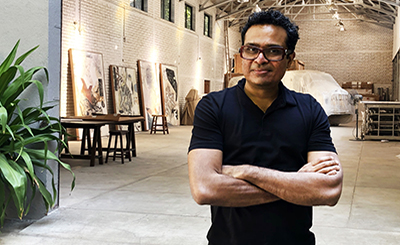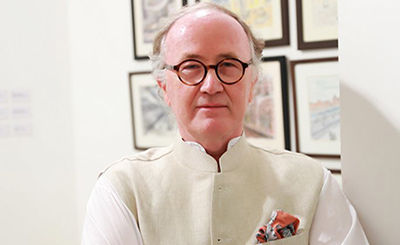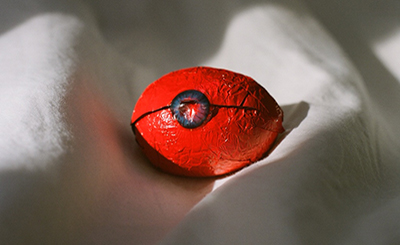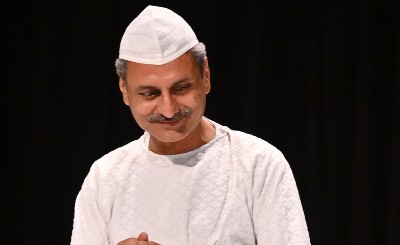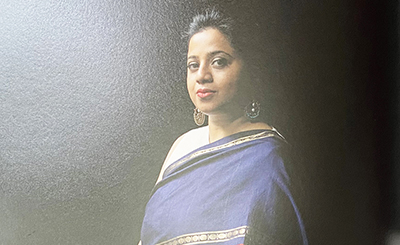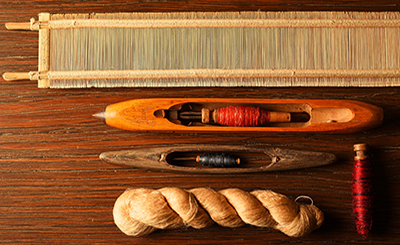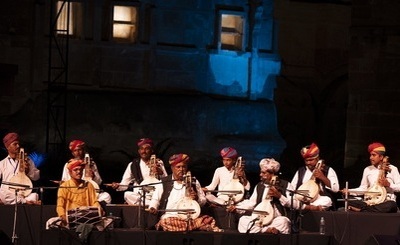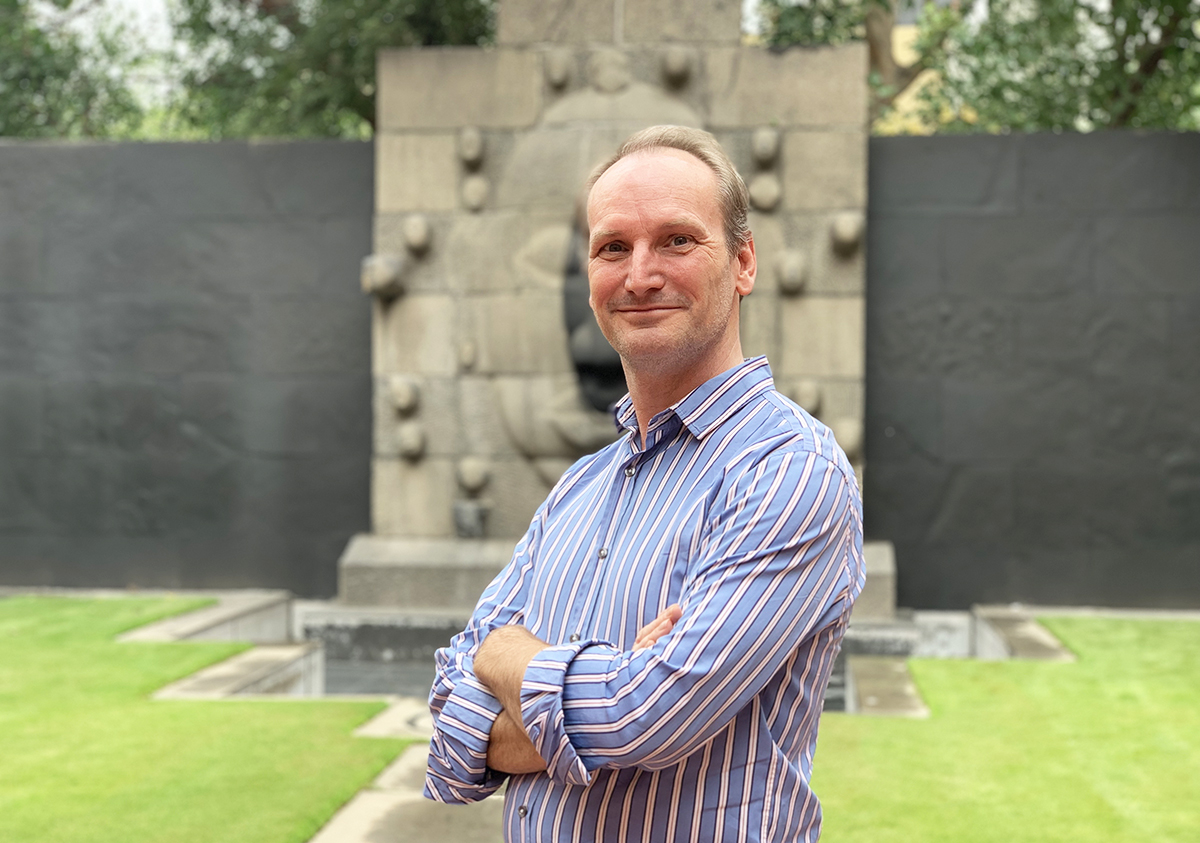
Jonathan Kennedy, Director Arts India, British Council. Photo courtesy of British Council, New Delhi
British Council has been long focused on boosting cultural relations between India and the UK. Recently, it announced ‘India-UK Together 2022 Programme’ under which it invites proposals for collaborative arts projects from Indian and British arts organisations, including festivals, for four grants of Rs 25 million. These grants will be given in the different fields across the spectrum of arts. The grant will be for co-creating productions for India-UK 2022-2023 season. Jonathan Kennedy, Director Arts India, British Council, shares more about the programme and the grants, as well as the post-Covid recovery of the struggling creative sectors. Excerpts from an interview:
British Council’s India-UK Together 2022 programme envisages greater collaboration between artists from both countries. It has invited collaborative arts and culture project proposals from arts organisations, festivals and institutions for the Rs 25 million grant. Tell us more about the programme and the grant.
India and the UK have a shared history and the great cultures of both nations bind the people and artists together. Over the years, British Council has been deeply engaged in enabling cultural exchange between India and the UK, allowing audiences from both countries get access to each other’s terrific artists across artforms — from theatre and dance, to crafts and visuals arts, literature to music and film. We’ve developed skills and shared learning on stages, galleries, museums and now on online on digital platforms.
Our India-UK Together programme marks the 75th anniversary of India’s Independence and aims to strengthen bilateral relationships through creative collaboration between the arts companies from both nations. As part of the larger programme, we are inviting collaborative proposals for new arts and culture projects from India and UK-based organisations, festivals, and institutions. We aim to put a spotlight on culture.
For organisations in both nations, this is an opportunity to think creatively, be innovative and explore new ways of artistic collaboration. Grants will be awarded to collaborative and co-created arts and culture project proposals between India and UK partners for skills and knowledge exchange and showcasing artistic work with scope to tour or be produced digitally in India in 2022- 2023.
What kind of project proposals will you be looking for and in what areas? The grant is going to be divided into four different organizations. Would they be from four different arenas?
The intent of the programme is to boost creative collaboration between Indian and UK arts companies. Applications must be able to demonstrate mutuality and co-development of the project from inception to delivery. The collaboration grant is open to India and UK (including Wales, Scotland, and Northern Ireland) arts and culture organisations such as arts and culture companies, museums, cultural institutions, arts festivals, consortiums, collectives, NGOs, social enterprises and digital platforms.
Proposals must consider co-development and delivery by one lead partner based in India and one company based out of the UK. Applications must be accompanied by enough information, showing how the project will be truly collaborative and mutual as well as indicating how the main theme and at least one curation theme will be addressed.
We want all applicants to demonstrate how they have considered and will deliver our values for equality, access and inclusion for artists and audiences, live (face-to- face) and digitally. Given the Covid-19 complexities and risks, we’ll be looking at proposals that can be delivered either 100 per cent digital or are of hybrid nature, making it possible for these to be showcased to audiences across India and UK either online or physically.
This collaboration will also entail arts organizations from the two countries to co-create a production for the India-UK 2022-23 season. What will be the highlights of the 2022-23 season, and will it be pivoted around certain themes, like freedom? What should we look forward to in the co-created production?
The Open Call for India-UK Together is an opportunity and a means to strengthen the arts and cultural relations between India and the UK. The programme also aims toward development of skills and capacity for long-term collaboration in the arts and opening new market opportunities. It looks at strengthening positive cultural relations through co-creation by developing new and expanding current partnerships.
To enable the widest possible spectrum of artists to participate, the open call invites projects across artforms such as theatre and dance, visual arts, new-media, music, film, architecture, design and fashion, literature, and inter-disciplinary arts. Cross-disciplinary practices that showcase the fusion of different art forms is encouraged as the campaign aims to bring creativity to the fore.
The central/cross-cutting theme for all projects will be ‘Together’ — addressing shared global challenges through the lens of digital innovation, environmental sustainability, equality, diversity, and inclusion principles, gender equality, accessibility and empowering young leaders of the future. The panel will look at how well the participants have bene able to embed of principles of equality, diversity and inclusion through the core proposal and design (e.g. artists and audiences accessibility needs: captioning videos, translations, interpreters, gender of the beneficiaries or project team, and so forth).
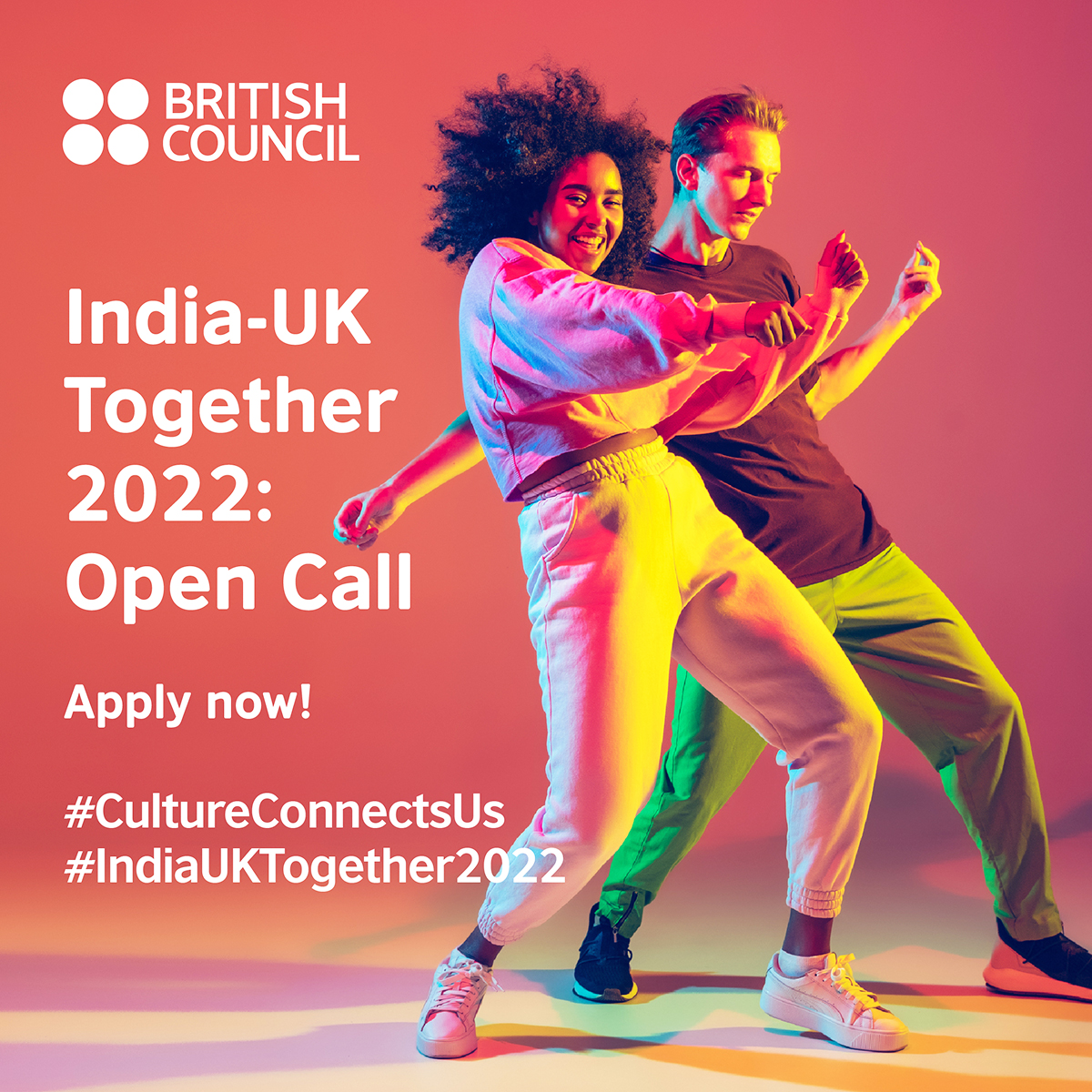
British Council has always created dynamic opportunities for artists and folks in the creative sectors. Has its mission to provide anchors to artists acquired impetus at a time when the pandemic has affected artists across disciplines, especially in performing arts?
We have always been, and remain, committed to creating opportunities for Indian artists, arts and culture organisations, festivals and festival professionals to succeed in a globalised world. All our work in Arts is directed at strengthening the arts and culture for creative expression, exchange and enterprise, and we do this by creating sustainable opportunities that enable emerging India and UK artists, organisations and cultural sectors to connect, share and create truly international projects.
We are aware of the impact that the pandemic has had on the arts sector in India, the UK and across the globe. Along with our partners FICCI and Art X Company, we launched the Taking the Temperature report to research the impact of Covid-19 on India’s creative economy.
While the first edition of the report tried to evaluate the initial impact of the pandemic on India’s creative economy, the second edition examined the deepening impact of the Covid-19 pandemic (on India’s creative economy). The final report (out in November) aims to capture the value of the creative economy to India’s GDP and the impact the pandemic has had on arts sectors and individual artists. The purpose of the report is to inform policy-makers and to help shape thinking and action for post-Covid recovery of the struggling creative sectors.
In March, we presented the Classic Bagh Festival in Delhi in association with Jodhpur RIFF and the Aga Khan Trust for Culture, to support Indian artists and festival sector professionals impacted by Covid-19. The Classic Bagh Festival was conscious of the challenges to livelihoods professional musicians and performers have faced during the pandemic, and underlines the British Council’s aim to support artists by bringing them face-to-face with audiences again. The festival was a part of our larger Festivals for the Future programme that features a series of UK-India musical collaborations between Jodhpur RIFF, Wales, and Northern Ireland. In November this year, we will launch with ArtsBramha (India) and the Audience Agency (UK) a major new digital platform Festival from India to explore, experience and engage with over a thousand arts and culture festivals across India. Festivals and audiences can now sign up here.
In response to the Taking the Temperature report, in April 2021, we also launched Creative Economy Scholarships for post-graduate study for Indian culture professionals and entrepreneurs in Arts Management and Culture Policy with four leading UK universities — Goldsmiths University of London, King’s College London, Birmingham City University and Glasgow University.
The British Council's support to artists is largely through skilling, networking and monetary support. The collaborations between the two countries shine light on richness and diversity of their cultural and creative endeavors. How have the last two years been for such collaborative projects?
The British Council wants to enable emerging Indian and UK artists, organisations and cultural sectors to connect, create and share more with each other. Our aim is to identify and create opportunities that allow the arts and culture sector professionals to explore newer ways of creative collaboration, as well as have a more sustainable employment and income stream.
Our multi-year arts and culture skills and capacity programmes aim to strengthen enterprise and innovation in the creative economy for systemic change in Festivals, Crafts and Heritage; and enable artistic collaborations between creative professionals and arts organisations. Our marquee programmes such as Crafting Futures, Festivals for the Future have been able to engage, upskill and empower artists even through the pandemic. For instance, our Connections Through Culture grants for festivals and artists currently supports 16 artistic collaborations and exchange programmes between creative professionals, arts organisations, and festivals across India, with partners from Wales and Northern Ireland in the UK. The scheme is designed to enhance creative capabilities and develop capacity for artists and festivals in India and its partners, to build long-lasting relationships between the two countries. The collaborations celebrate the varied contemporary cultural connections in music, theatre, visual arts, film and literature, and grantees from India are preparing to collaborate with their counterparts in Wales and Northern Ireland virtually.
Art practice, both in India and the UK, is always in the throes of change, with artists experimenting with new medium and embracing multi-disciplinary approaches. Is the programme’s thrust on exploring new ways of artistic collaboration in recognition of this fact?
Creativity is only limited by our ability to imagine and dream — the arts are boundless. Covid-19 has locked us away living and working from home, but technology has enabled many to enter a brave new world of digital collaboration and international exposure. With India-UK Together, we hope to tap into that ability for arts to inspire the current generation of young audiences and to harness the ambition of arts company’s entrepreneurial spirit that is so abundant in India.
How is British Council coming to terms with the new normal? Has the pandemic affected its programming and outreach activities?
At British Council, we strive to promote creativity, collaboration, and connection across international borders. Our vision has not been deterred even by the global lockdowns. We have been able to overcome the challenges posed by the pandemic by adopting a digital-first approach and continue to provide dynamic opportunities to support artists and their work for collaboration around the world.
The overwhelming response to our Connections Through Culture grant and the seamless, geography-agnostic collaboration between applicants from India and the UK is a testimony to the power of arts and artists to adapt and remain resilient through digital medium. British Council’s cultural relations have entered the digital era and with India-UK Together, we are positioned to strengthen innovation with new hybrid models of reaching audiences online and onstage.
More from Arts
Comments
*Comments will be moderated




